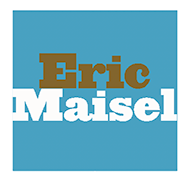
[This User’s Guide to Coaching series explains everything you need to know to successfully engage and work with a coach—a life coach, a creativity coach, an executive coach, any sort of coach. It accompanies Dr. Maisel’s latest book, The Coach’s Way, described as “the finest resource available for anyone who wants to develop or enrich their coaching abilities.” Grab your copy now!]
 You may be finding life hard. Many people are. Maybe it crosses your mind that you would like to get some help and have life feel less hard. Or maybe you have some very specific goals, dreams and desires—that you get your novel written, that you get your one-person business off the ground, that you lose weight, that you find meaningful work, that you meet someone to love, that you sleep better. Maybe you’d like some help with one of those.
You may be finding life hard. Many people are. Maybe it crosses your mind that you would like to get some help and have life feel less hard. Or maybe you have some very specific goals, dreams and desires—that you get your novel written, that you get your one-person business off the ground, that you lose weight, that you find meaningful work, that you meet someone to love, that you sleep better. Maybe you’d like some help with one of those.
The first thing to do is to ask yourself the following question. Are you looking for someone to assist you or to do the work for you?
In one helping model, your helper does the work. You expect the accountant you hire to do your taxes, not sit beside you and assist you as you do your taxes. You expect him or her to do the work. You don’t expect your plumber to teach you plumbing or your roofer to teach you roofing. You expect them to do the work. That’s one model of helping.
The other model of helping is an assistance model where you do the work. Your French tutor helps you, but you must learn French grammar and vocabulary yourself. Your physical therapist helps you, but you must do the exercises yourself. Your painting instructor demonstrates a technique, but then you must apply it. In each of these instances and in countless others, the helper you hire returns the work to you. He or she helps—but you must do the work.
You know intuitively that the helper you are beginning to consider looking for, if the challenge is sleeping better, losing weight, or writing your novel, is someone who is obliged to return the work to you. You may know that intuitively, but it is good if you get clear on this from the start. You will not be hiring an accountant or a plumber. You will be hiring someone who will “make work for you.” Let’s be clear about that.
Maybe your current challenge is that you are feeling very sad. You might wish to find a helper of the first sort, someone who will do the work for you by prescribing a pill and saying, “That’s that.” The only work he is asking you to do is to take your medicine. But isn’t it just as likely that you will want to find a helper of the second sort, one who says, “Let’s see what’s going on here. There may be some changes you’ll want to make—are you ready for that?” Are you looking for helper number one or helper number two?
If you decide to work with a coach, you will be working with a helper of the second sort. She will not be prescribing a pill or “making it easy” for you. She’ll want you not only to identify and name your goals but to work toward achieving those goals. And so, the answer I hope you will arrive at, in response to question, “Are you willing to do the work?”, is “Yes, I am ready to work.” If you are, then coaching is for you.
***
“The Coach’s Way is possibly the finest resource available for anyone who wants to develop or enrich their coaching abilities. This new book is designed to give coaches the confidence and structure in their practice that will generate real results for their clients. Any- one who makes a living in the coaching arena will benefit from Dr. Maisel’s tremendous experience and training as a therapist, coach, and human. I’m so glad to have this book as a guide for my own coaching work and will recommend it to many others in the helping professions.”— Jacob Nordby, author of The Creative Cure: How Finding and Freeing Your Inner Artist Can Heal Your Life

**
iStock image
The post The Coach’s Way: User’s Guide to Coaching appeared first on The Good Men Project.
